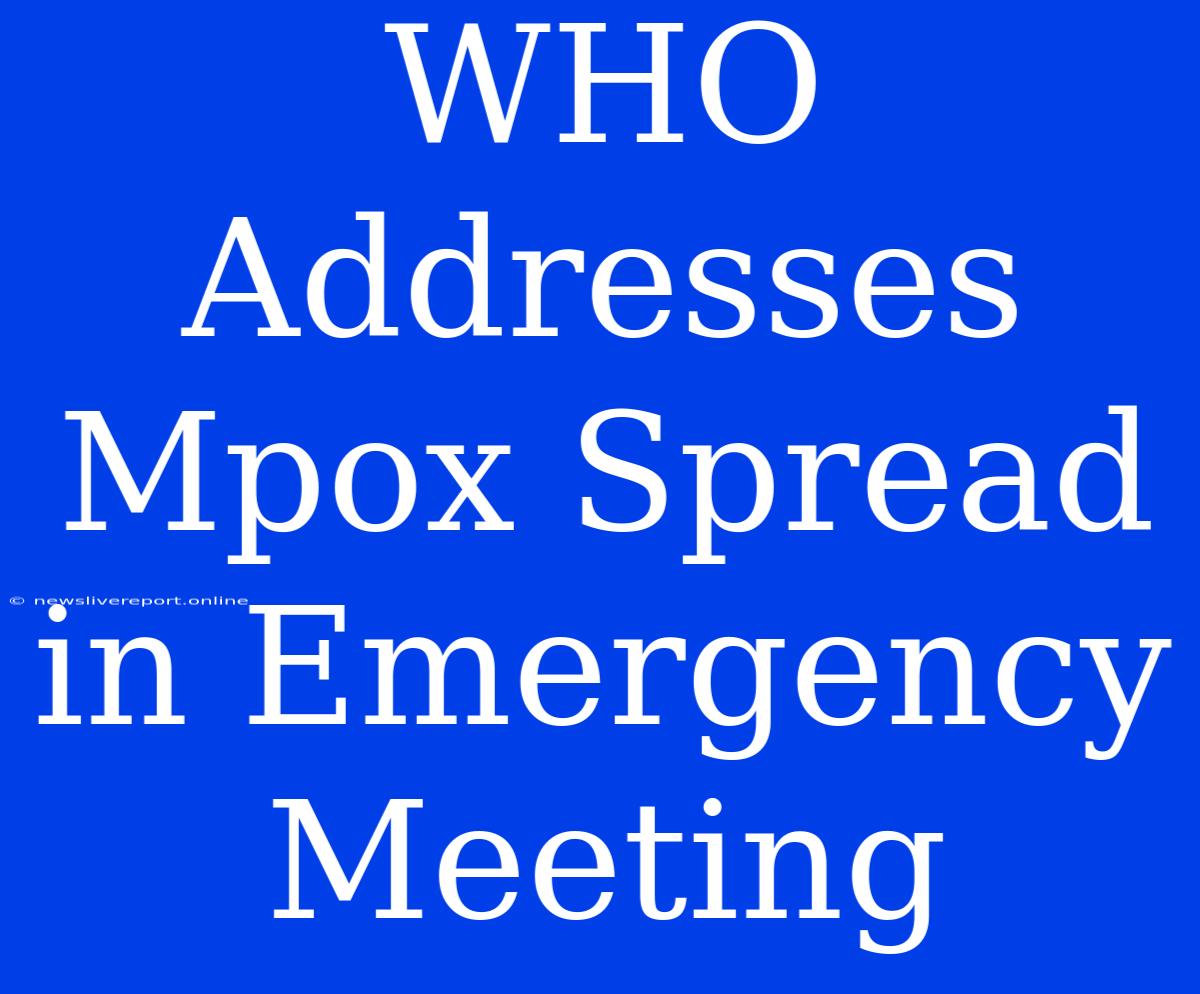WHO Addresses Mpox Spread in Emergency Meeting: What You Need to Know
The World Health Organization (WHO) convened an emergency meeting on [date] to discuss the escalating spread of mpox, formerly known as monkeypox, and determine if the outbreak constitutes a Public Health Emergency of International Concern (PHEIC). [Mention the outcome of the meeting here, whether it was declared a PHEIC or not].
Here's what you need to know about the WHO's decision and what it means for global health:
What is mpox and how is it spread?
Mpox is a viral disease that can cause a range of symptoms including fever, headache, muscle aches, swollen lymph nodes, and a rash that can look like pimples or blisters. It spreads through close contact with an infected person or animal, including through contact with infected skin lesions, respiratory droplets, or contaminated materials.
Why is the WHO concerned?
The rapid spread of mpox beyond endemic areas has raised significant concerns. The WHO is monitoring the situation closely, particularly as the virus continues to spread in countries where it was previously uncommon. [Mention specific examples of the spread, such as countries that have seen a rise in cases or specific regions].
What actions has the WHO taken?
[Describe specific actions taken by the WHO, such as issuing guidelines, providing technical assistance, and collaborating with countries].
What can you do to protect yourself?
[Provide advice on how to protect yourself from mpox, including practicing good hygiene, avoiding close contact with infected individuals, and seeking medical attention if you experience symptoms].
[Mention the importance of staying informed and following public health advice from local authorities and the WHO].
Moving forward
The WHO's declaration of a PHEIC [mention if it was declared or not] will likely lead to increased global efforts to control the spread of mpox. This includes:
- Enhanced surveillance and reporting: The WHO is working to improve the collection and reporting of mpox cases worldwide.
- Increased research and development: Efforts are being made to develop new vaccines and treatments for mpox.
- Public health messaging and education: The WHO is working to raise public awareness about mpox and how to protect themselves.
[Include any other relevant information or insights about the ongoing mpox outbreak. You can also mention specific countries that have been heavily affected and provide details on how the situation is unfolding].
By staying informed and taking precautions, we can help to prevent the further spread of mpox and protect global health.
[You can also include a call to action, encouraging readers to learn more about mpox, follow health advice, and get vaccinated if available].

